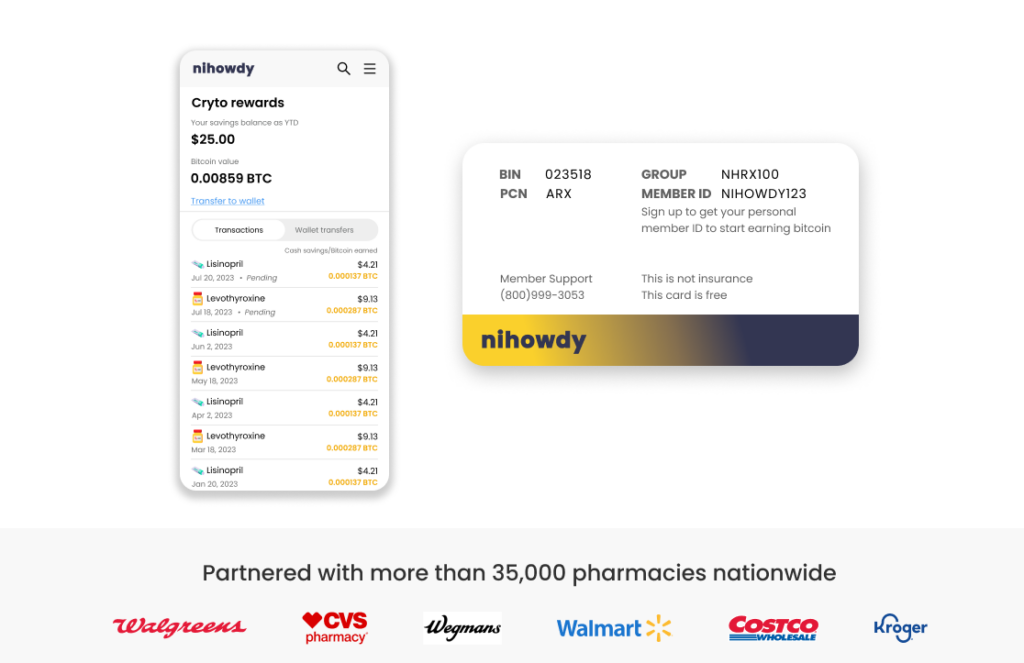Can You Take Acyclovir While Pregnant? Assessing the Safety and Risks


Concerned about “can you take acyclovir while pregnant?” Current evidence supports its safety for both you and your developing baby. This article cuts through medical jargon to present clear, concise information on acyclovir use in pregnancy, from clinical safety data to guidelines for your prenatal care discussions.
Key Takeaways
Acyclovir is considered safe for use during pregnancy, with no significant increase in major birth defects associated with its use in the first trimester compared to the general population.
Suppressive acyclovir therapy starting in the third trimester has proven effective in reducing the recurrence of genital herpes at term, potentially lowering Cesarean delivery rates and minimizing the risk of neonatal HSV transmission.
Professional guidelines, including those from ACOG, and the FDA’s category B rating for acyclovir endorse its use during pregnancy, highlighting the importance of personalized care and shared decision-making between healthcare providers and patients.
Understanding Acyclovir and Pregnancy
The dialogue surrounding the use of acyclovir during pregnancy is complex, as it combines worries about herpes simplex virus infections with the search for safe therapeutic methods. Acyclovir stands out in the antiviral drug arena and has provided relief to numerous individuals. Its effectiveness and safety for pregnant women who are dealing with genital herpes remain a critical issue. This concern is paramount not only because of the distress linked to herpes, but also because of the serious risks that this infection presents to both expectant mothers and their babies.
It’s essential to thoroughly examine both established data and apprehensions concerning this widely used yet powerful medication.
The Concern with Herpes Simplex Virus Infection During Pregnancy
When the herpes simplex virus enters the picture during pregnancy, it’s not just the typical skin woes that raise alarm bells. Neonatal herpes, a daunting consequence of maternal transmission during childbirth, lurks in the background as a severe, potentially life-threatening condition. With approximately 5.9 cases per 100,000 live births, neonatal HSV infections can manifest in various forms, including:
Skin and mouth infections
Central nervous system diseases
Disseminated infections
Death
It is important to be aware of these risks and take necessary precautions during pregnancy.
This grim reality underscores the criticality of managing recurrent genital herpes simplex virus infections, a type of sexually transmitted infections, and herpes simplex virus shedding during pregnancy, spotlighting the need for viable solutions like acyclovir.
A Glimpse into Acyclovir’s Mechanism
Acyclovir’s effectiveness is rooted in a compelling scientific mechanism that offers comfort through its results. It specifically targets and hampers the DNA polymerase enzyme of the herpes simplex virus, which is crucial for viral replication. By interfering with this process, acyclovir significantly reduces both the intensity and the length of an outbreak. Its precision in hindering the virus from proliferating eases symptoms and has consequential benefits for managing pregnancies.
It warrants deeper exploration into how this potent antiviral agent functions, as well as understanding why it’s considered a sound choice for treating expectant mothers affected by herpes simplex.
Third Trimester Antiviral Prophylaxis
During the final stretch of pregnancy, specifically in the third trimester, attention turns to acyclovir for its preventative benefits. Research has demonstrated that initiating suppressive therapy with this antiviral at 36 weeks into pregnancy can decrease cesarean section rates by lowering genital herpes relapse near delivery. This approach is advantageous not just for lessening surgical births, but also for reducing neonatal exposure to Herpes Simplex Virus (HSV) during childbirth.
Despite potential minor side effects such as skin rashes and dizziness being infrequent and trivial, the case for administering trimester antiviral prophylaxis becomes more compelling.
Evaluating the Safety of Acyclovir in Pregnant Women

When considering the use of medications like acyclovir during pregnancy, ensuring safety is of utmost importance. Although there’s a lack of widespread research, the current data provide comfort in suggesting that it is safe to administer acyclovir at any point throughout pregnancy. The risk estimate for birth defects linked with using acyclovir during the first trimester sits around 3.2%, which aligns closely with the rate observed within the general population. Research indicates no elevation in the incidence of major birth defects after prenatal exposure to this medication.
It is critical to thoroughly examine and understand the evidence informing us about acyclovir’s safety for pregnant women.
Insights from the Acyclovir Pregnancy Registry
In collaboration with the CDC since 1984, the Acyclovir Pregnancy Registry has collected valuable data on pregnancy outcomes following acyclovir exposure. Out of 811 prospective reports concerning women who took acyclovir while pregnant, outcomes for 601 have been documented by the registry and these insights have played a crucial role in alleviating worries about potential risks associated with taking this medication during pregnancy.
Specifically regarding infants born alive whose mothers were treated with acyclovir throughout their first trimester, only about 4% presented birth defects. This percentage does not reveal an identifiable pattern of anomalies nor does it indicate an elevated risk of birth defects correlated to systemic prenatal exposure to acyclovir. Additional research, including an exhaustive study conducted within Denmark’s cohort population, reinforces these conclusions and continues to support the use of both acyclovir and its analogue valacyclovir as safe treatment options during gestation.
Risk Estimates for Birth Defects
Examining the data more closely, it becomes clear that the likelihood of birth defects related to acyclovir exposure is quite comforting. Research involving a substantial number of live births indicates that there isn’t an increased risk for either major birth defects or any other types of birth defect among infants who were exposed to acyclovir during the first trimester, as indicated by a prevalence odds ratio standing at 0.89.
When considering concerns around topical use, research implies no considerable danger in using dermatologic acyclovir cream during pregnancy with regard to inducing major birth defects. This information offers significant relief to both expecting mothers and their healthcare practitioners.
Comparing Adverse Pregnancy Outcomes
The impact of oral acyclovir on a range of pregnancy outcomes warrants consideration, beyond the potential for birth defects. Research indicates that its use has been associated with a decrease in preterm deliveries, which is noteworthy for pregnant women. It should be recognized though that the drug does not seem to notably influence the occurrence of premature rupture of membranes before labor, something obstetricians need to take into account when prescribing this medication.
Acyclovir’s safety profile during pregnancy becomes more defined when considering there were no significant variances in adverse reactions between those taking acyclovir and those given a placebo. This information contributes positively towards informed decision-making regarding the treatment options available to pregnant women.
Clinical Evidence and Recommendations
A harmonious consensus from clinical studies strongly supports the use of acyclovir, particularly for reducing the incidence of early birth among HSV-2 positive pregnant women. Research has shown that between weeks 28 and 36 of gestation, administering acyclovir can diminish the likelihood of premature births. Only 11 percent who received acyclovir delivered early in contrast to a notable 24 percent with a placebo. These results are fortified by adherence to ethical guidelines, secured through informed consent and overseen by an autonomous data and safety monitoring committee, Endorsing obstetricians’ consideration of suppressive therapy with acyclovir on an individual basis.
It’s essential to dissect how these empirical conclusions impact clinical directives regarding antiviral treatment throughout pregnancy’s course.
Suppressive Therapy to Prevent Recurrent HSV Infection
Suppressive treatment using oral acyclovir, valacyclovir, and famciclovir serves as a formidable defense in preventing the recurrence of HSV infections. A Ugandan double-blind placebo-controlled study has contributed to our understanding by demonstrating that the use of acyclovir reduced instances of preterm delivery when compared with a placebo group. This finding is supported by research from Sheffield et al., along with Watts et al., which confirms the benefits of antiviral prophylaxis employing both valacyclovir and acyclovir later in pregnancy. Solidifying recommendations for suppressive therapy starting at week 28.
Administration involving 400 mg doses of oral acyclovir taken twice daily post-36 weeks gestation was effective in diminishing genital shedding of HSV-2. Consequently, this practice mitigated potential negative outcomes affecting both mother and child during childbirth.
Impact on Preterm Delivery and Neonatal Infection
Acyclovir’s influence on the rates of preterm delivery and neonatal infection is profound. The medication has been shown to reduce not only the rate at which women deliver prematurely, but it has also contributed significantly to a reduction in instances where newborns require admission into special care units. This holds particularly true based on results from a research study conducted in Uganda, which highlighted acyclovir’s effectiveness when administered between the 28th and 36th weeks of pregnancy, signaling an advancement for HSV-2 positive mothers seeking improved outcomes for their pregnancies.
Despite this progress, it’s important to note that acyclovir treatment did not alter the occurrence of premature rupture of membranes before term. Nevertheless, given its overall advantages, overlooking the value that acyclovir brings to antenatal care would be difficult.
Official Guidelines and FDA Classification
Healthcare professionals rely on the official guidelines and FDA categorization to navigate the administration of acyclovir throughout pregnancy. Acyclovir is recommended by the American College of Obstetricians and Gynecologists (ACOG) for managing herpes during this time, while it carries a category B classification from the FDA, signifying that there’s no recognized fetal risk associated with its use. The rationale behind this designation originates from animal reproduction studies which have not demonstrated any harmful effects, thus clearing acyclovir for use in any stage of pregnancy.
Navigating Treatment Decisions with Your Healthcare Provider
Amidst the framework of clinical data and recommendations, pregnant women are faced with complex choices regarding therapeutic strategies. The significant prevalence of herpes simplex virus infection among expectant mothers calls for a joint effort with healthcare professionals to determine an appropriate course of treatment during pregnancy.
It’s important to delve into the elements that influence these essential discussions and chart a path forward in selecting the most suitable treatment options.
Factors to Consider
Before making any changes to a medication regimen during pregnancy, including the decision to take acyclovir, it is crucial to consult with healthcare providers. Acyclovir is commonly prescribed for initial herpes virus infections in pregnant individuals and may be advised by medical professionals for managing herpes and chickenpox during the third trimester. Ensuring both mother’s and baby’s well-being involves weighing various considerations carefully between patients and their healthcare teams.
Balancing Risks and Benefits
Navigating the delicate equilibrium between the dangers of not treating a herpes infection and the possible advantages offered by acyclovir requires careful consideration. This is especially relevant when dealing with initial genital herpes infections, herpes zoster, or severe illnesses such as varicella pneumonia that might justify using antiviral medications like acyclovir.
Considering that safety data indicate no heightened risk for birth defects from treatment, the favorable outcomes of therapy frequently surpass potential risks given how common herpes infections are. Making this decision demands thoughtful reflection and an in-depth appreciation of both sides—the inherent risks and prospective benefits.
Personalized Care Approaches
In the administration of acyclovir while pregnant, customized attention to each case is crucial. Considerations include which trimester the pregnancy is in, whether there’s existing immunity to herpes simplex virus (HSV), and personal risk factors like maternal age and health status. The healthcare provider’s up-to-date knowledge on current studies and understanding of acyclovir’s safety can aid in shaping advisories that reduce potential dangers.
At the heart of determining a course of action should be collaborative decision-making—this ensures prioritizing both the well-being of the mother and safeguarding her unborn child when contemplating treatment options.
Maximizing Prescription Savings with NiHowdy
Delving into the financial side of healthcare, especially regarding prescription drugs, can be just as intricate as choosing the treatments. NiHowdy emerges as a guiding light in the dense fog of medical spending by presenting a savings card for prescriptions that delivers not merely price cuts but also bestows Bitcoin rewards on its users.
This innovative element brings an additional layer to controlling expenses related to healthcare, which is particularly beneficial for soon-to-be parents who are bracing themselves for higher health-related costs.
How NiHowdy’s Card Works
The NiHowdy card revolutionizes our approach to prescription savings. Forget the hassle of managing cumbersome cards or trying to recall long membership codes. This digitally available card can be easily kept on a smartphone or printed out for handiness. To access immediate discounts on drugs, one only needs to show the card at any pharmacy that is part of the program when filling prescriptions.
This method makes the whole experience clear-cut and uncomplicated, not only streamlining your purchase but also providing the delightful bonus of accumulating rewards with each transaction.
Earning Bitcoin Rewards
The card from NiHowdy presents several advantages.
It provides immediate cost savings.
It incentivizes every prescription refill with Bitcoin rewards, offering up to a 3% return.
It transforms your healthcare spending into an opportunity for financial investment.
Utilizing blockchain technology guarantees that transactions are both safe and verifiable.
For forward-thinking individuals, the possibility that these Bitcoin incentives could appreciate over time holds promise far beyond merely balancing out current medical expenses.
Long-Term Financial Planning
Considering the potential long-term financial impact of leveraging NiHowdy’s prescription savings card is important. The allure lies in the Bitcoin rewards, which stand a chance to increase in value given cryptocurrency’s finite availability and its rising popularity. Should their market value climb, these earnings could help counterbalance not only impending healthcare expenses but also other substantial outlays down the line, rendering them a shrewd component within one’s fiscal strategy.
Prospective parents may find it particularly beneficial to gather these rewards as part of their planning process for upcoming parenthood costs. This foresight can provide an extra cushion for any unforeseen expenses that arise and contribute positively to their overall monetary health.
Summary
As we draw the curtains on our exploration of acyclovir’s use during pregnancy, we’re left with a clear picture painted by historical studies and clinical evidence. Acyclovir, a vital tool in managing herpes simplex virus infections, stands as a safe option for expectant mothers when judiciously prescribed. The data from the Acyclovir Pregnancy Registry and subsequent studies provide a reassuring nod to its safety profile, while clinical trials underscore its efficacy in reducing the risk of preterm delivery and neonatal complications. With guidelines from ACOG and an FDA classification that supports its use, acyclovir’s role in prenatal care is well-established.
The journey through pregnancy is deeply personal, and each decision regarding treatment with antiviral medications such as acyclovir should be made in partnership with a healthcare provider. Taking into account individual health histories, risk factors, and the latest research, a personalized care plan can be crafted for optimal outcomes. And amidst the complexities of managing health and finances, NiHowdy stands out as a beacon of innovation, offering prescription savings and Bitcoin rewards that cater to the long-term financial health of families. This blend of medical insight and financial savvy is a testament to the multifaceted approach needed to navigate the waters of pregnancy and healthcare.
Frequently Asked Questions
Is acyclovir safe to use during all trimesters of pregnancy?
Based on the data gathered from the Acyclovir Pregnancy Registry, along with research, acyclovir has been deemed safe for use throughout all stages of pregnancy. The evidence indicates that there is no substantial rise in either birth defects or negative outcomes related to pregnancy when using this medication.
Can acyclovir prevent the transmission of herpes simplex virus from mother to baby?
Yes, acyclovir can help prevent the transmission of herpes simplex virus from mother to baby by reducing the severity of outbreaks and lowering viral shedding during childbirth.
What is the recommended dosage of acyclovir during pregnancy?
It is recommended to take 400 mg of oral acyclovir twice daily as suppressive therapy during late pregnancy, although it’s crucial to seek a tailored dosage plan from your healthcare provider.
Does using NiHowdy’s prescription savings card affect the quality or selection of medications?
No, the quality or variety of medications is not compromised when you utilize NiHowdy’s prescription savings card. You will still receive the necessary medications and be able to enjoy discounts on an extensive assortment of them.
What are the benefits of earning Bitcoin rewards with NiHowdy’s card?
Earning Bitcoin rewards with NiHowdy’s card can help offset healthcare costs and grow in value over time, providing long-term financial wellness and resources for future expenses.


